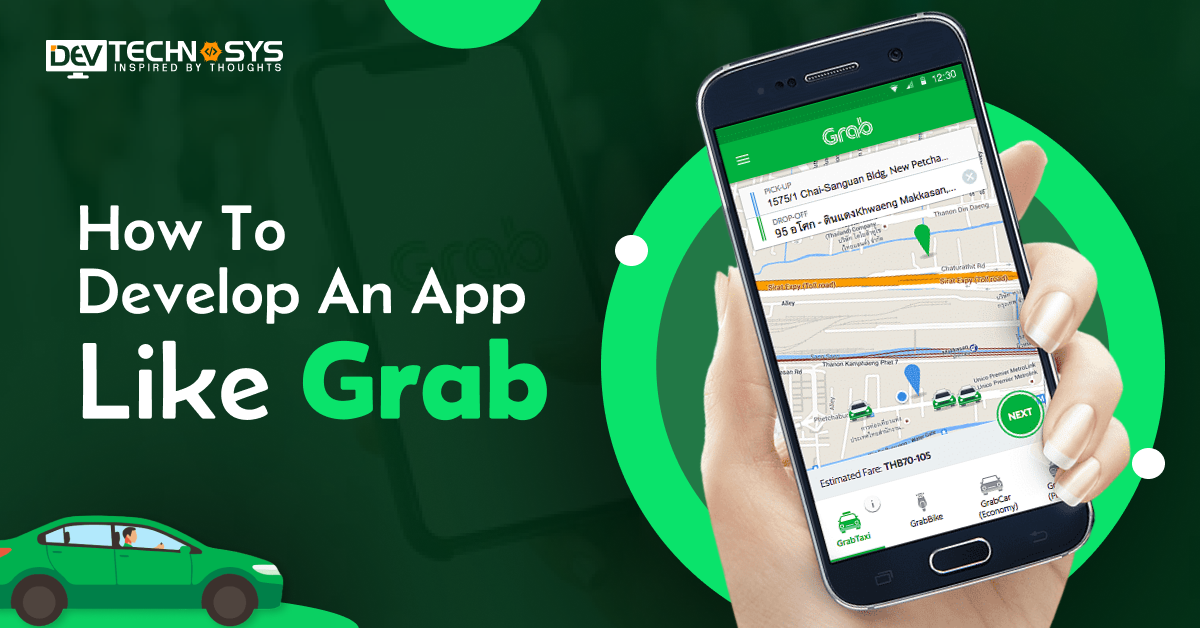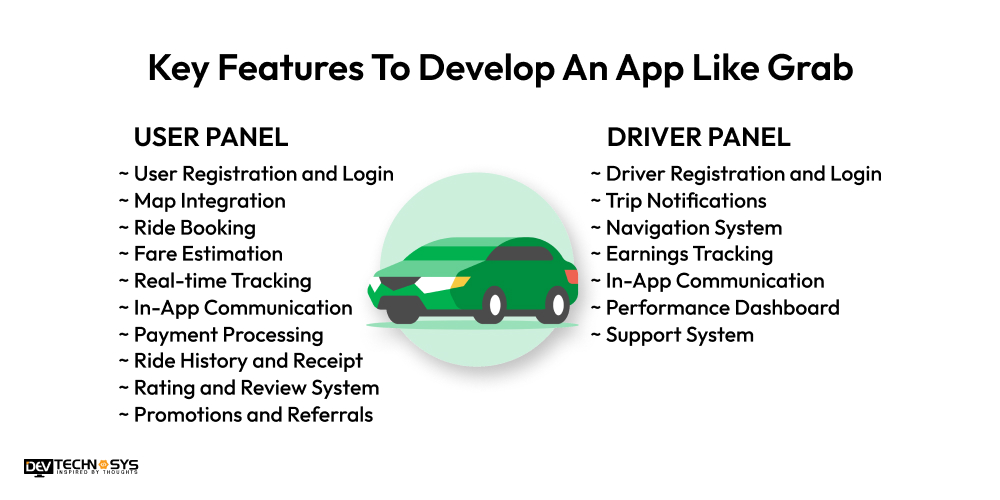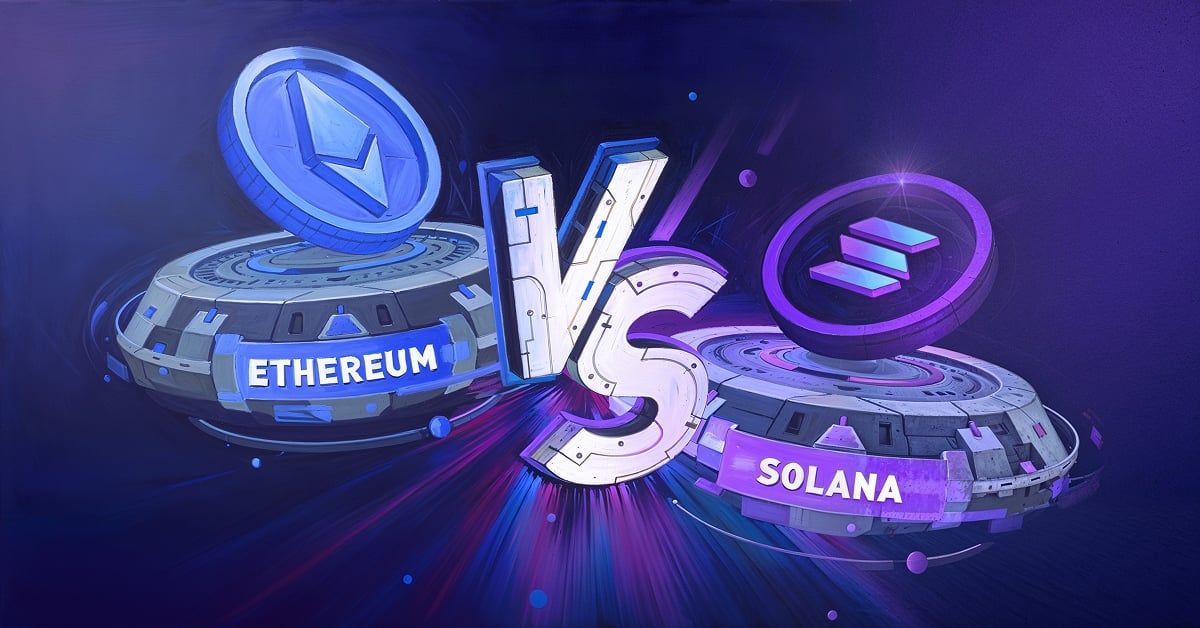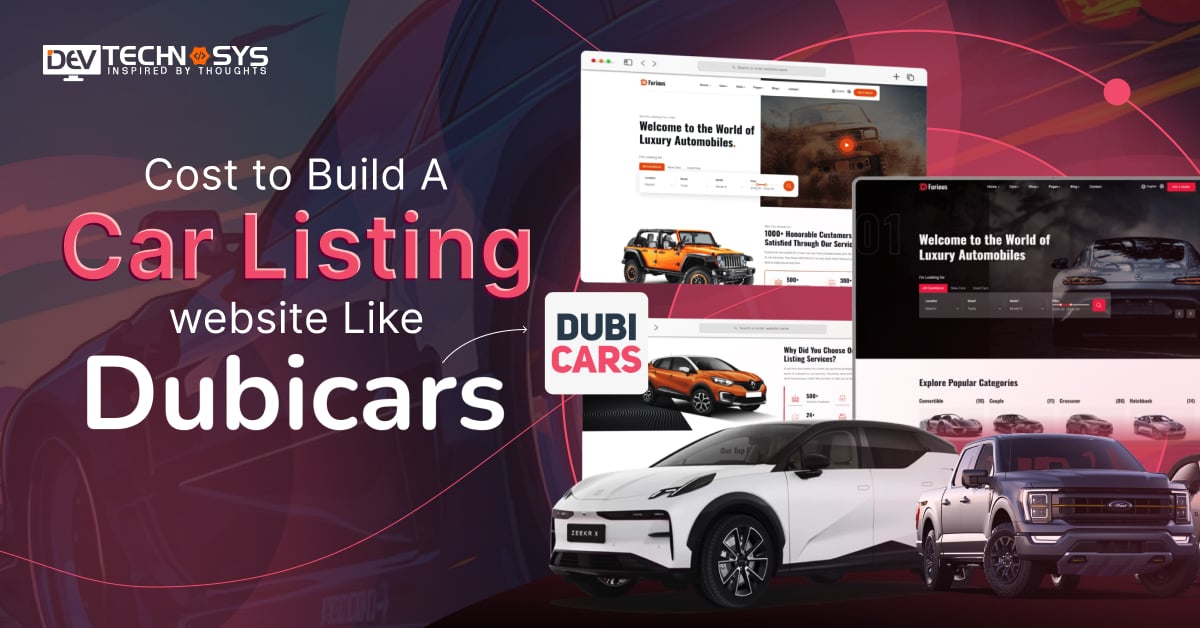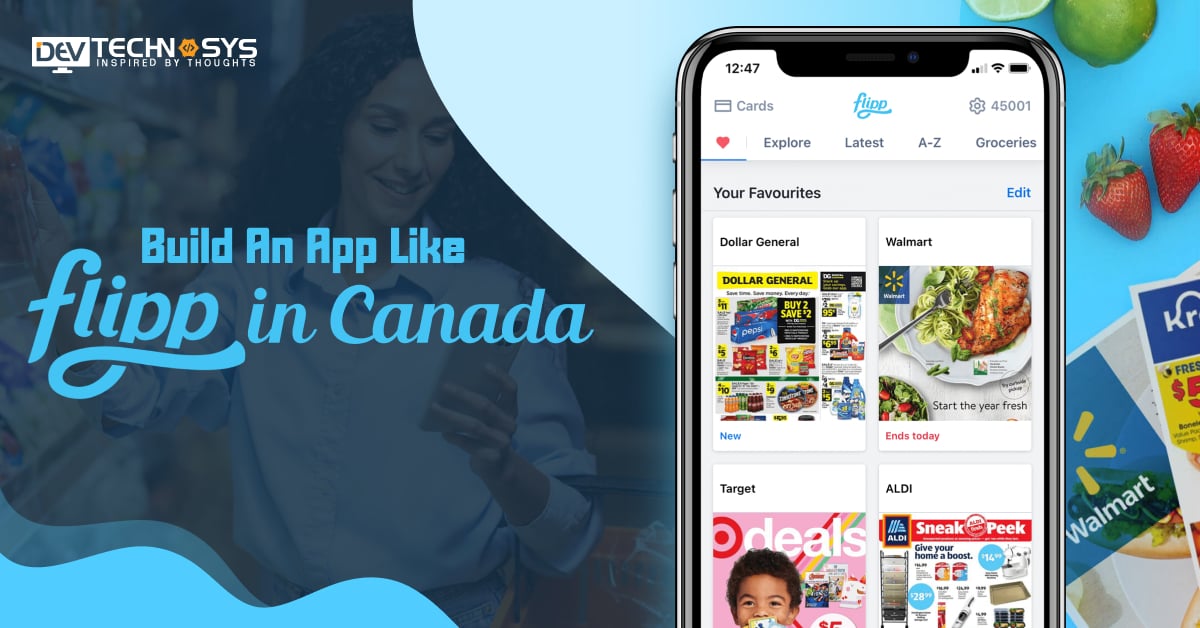“Convenience at your fingertips – Grabbing the future, one ride at a time.”
The on-demand ride-hailing industry has experienced explosive growth in a world of convenience. Grab has revolutionized how people get from A to B. This shows the huge market potential with the incredible on demand app ideas. There will be 5.8 billion smartphones in use worldwide by 2021, and the ride-sharing industry is expected to reach 384 billion dollars by 2025.
This blog explores the stages to develop an app like Grab. It examines the essential features, the technology stack, and the user experience. We’ll explore the essential components to create a seamless, secure platform, from payment gateways and geolocation services to user experience considerations.
Our comprehensive guide is designed to help entrepreneurs and established businesses navigate this dynamic market by learning steps to develop on demand app like Grab.
What is An App Like Grab?
Grab, an on-demand mobile app, connects users to various delivery and transportation services. Customers can order food, taxis, or packages to be delivered at their convenience. These apps usually feature real-time tracking and payment processing, as well as user reviews.
Grab, for example, provides ride-hailing services, food delivery, and payment services throughout Southeast Asia. These apps have revolutionized how people access goods and transportation, allowing for a seamless experience and creating income opportunities for business by hiring on-demand app development services.
Future Predictions & Projections of Grab
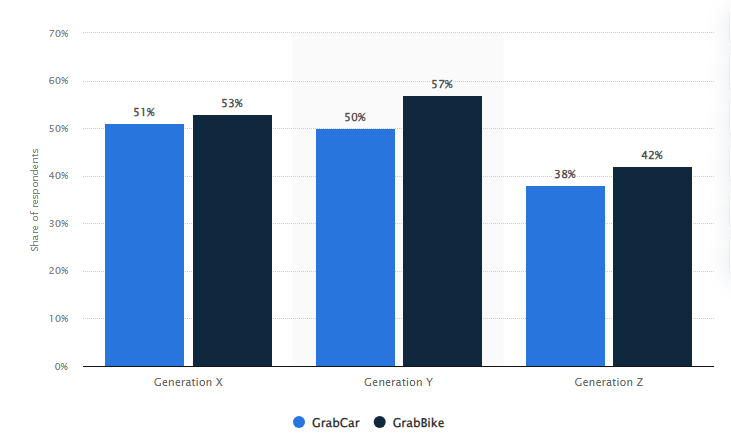
- Around 57% of Millennials who answered a survey by Decision Lab in the second quarter of 2024 said that GrabBike was the app they used most often.
- In the next year, it was thought that each rider would still get 32 rides.
- As of 2024, Grab’s mobility service segment brought in a total of 869 million U.S. dollars.
- Within the year 2024, Grab Thailand made around 15.6 billion Thai baht.
- Grab, the top taxi booking apps, had about 2.8 million active drivers in 2019. Gojek, an Indonesian company, came in second with about 1 million.
How Does An App Like Grab Work?
Before you develop an app like Grab, you must know its working mechanism. It helps you in knowing how the app functions and how users can use it. Below is the working process of Grab app explained by a taxi booking app development company.
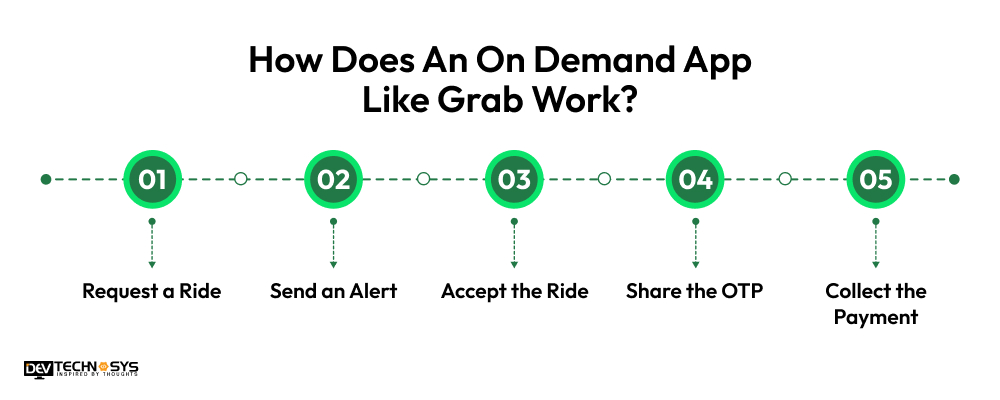
1. Request a Ride
The users uses the app to request a ride. They enter where they want to be picked up and dropped off, choose the type of vehicle they want, and confirm the ride.
2. Send an Alert
The app finds nearby drivers and lets them know about the ride request. The driver either agrees to go or says no.
3. Accept the Ride
Once a driver accepts the ride, the passenger gets the driver’s information, and so on. The passenger can find out where the driver is and when they are expected to arrive.
4. Share the OTP
When you create an app like grab, the passenger gives the driver an OTP when they get to the pickup location to start the ride.
5. Collect the Payment
When they get to the drop-off spot, the driver marks the ride as “Complete” and takes the money.
10 Apps Like Grab
Before you dive into the section to develop an app like Grab it is crucial to learn some of the popular apps like Grab from this section below.
|
App Name |
Launch Date |
Downloads (Approx.) |
Ratings (Average) |
Available Platforms |
| Uber | 2010 | 500 million+ | 4.0 (Android) | iOS, Android |
| Lyft | 2012 | 100 million+ | 4.7 (iOS), 4.0 (Android) | iOS, Android |
| Ola Cabs | 2010 | 100 million+ | 4.4 (Android) | iOS, Android |
| Didi Chuxing (DiDi) | 2012 | 100 million+ | 4.3 (Android) | iOS, Android |
| Gojek | 2010 | 10 million+ | 4.3 (Android) | iOS, Android |
| Bolt (formerly Taxify) | 2013 | 50 million+ | 4.3 (Android) | iOS, Android |
| Careem (now part of Uber) | 2012 | 50 million+ | 4.4 (Android) | iOS, Android |
| GrabWheels | 2018 | 1 million+ | 3.7 (Android) | Android |
| 99 (formerly 99Taxis) | 2012 | 10 million+ | 4.1 (Android) | iOS, Android |
| Yandex.Taxi | 2011 | 50 million+ | 4.2 (Android) | iOS, Android |
8 Steps to Develop an App Like Grab
It is an important undertaking to develop an app like Grab. This requires planning and execution. Grab, Southeast Asia’s ride-hailing service and delivery service, has emerged as a major player within the on-demand services industry. You should follow well-defined steps to build an app like Grab.
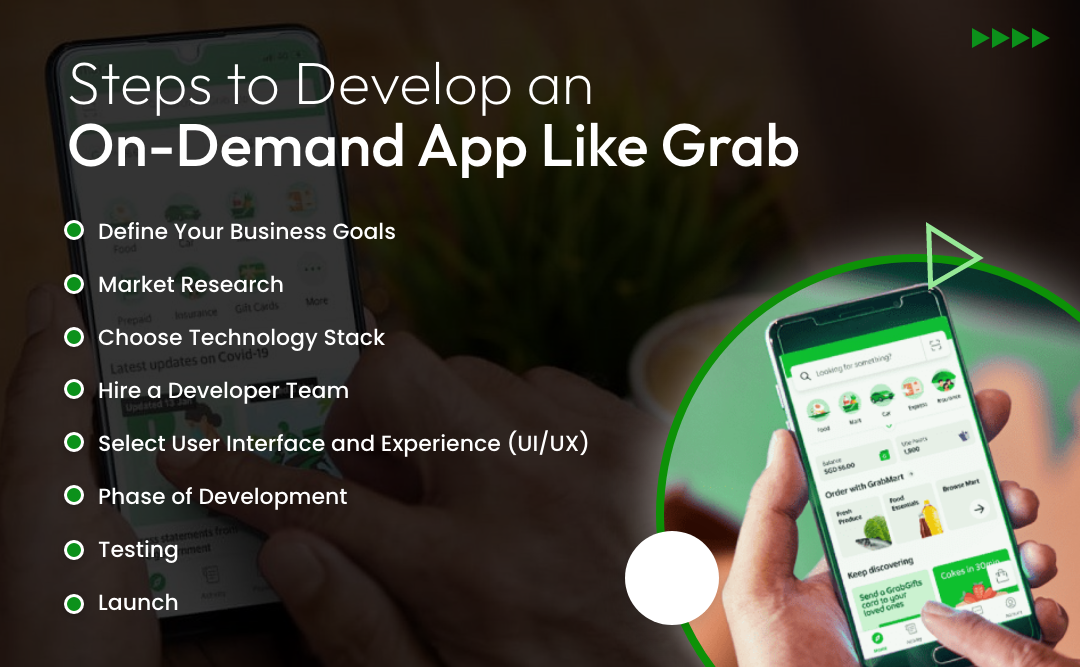
This guide will break the process down into eight key steps, starting with defining your business goals and ending with launching the on demand taxi delivery app like Grab.
1. Define Your Business Goals:
It is the first stage to develop an app like Grab by defining your business goals and understanding the scope and purpose of your app is important. Do you want to focus on delivery services or ride-hailing? To measure your success, identify your target market, revenue models, and key performance metrics (KPIs).
2. Market Research:
It is the second stage in the process to develop an app like Grab in which it is important to conduct market research in order to understand your competitors and your users better. Analyze and identify the current on-demand apps market.
Assess their strengths and weaknesses. Understanding your target audience and their pain points is key. Gather data through surveys, focus groups, and competitor analyses to inform the features and positioning of your app.
3. Choose Technology Stack:
This is the third stage in the process to develop an app like Grab in which you should choose the right technology stack that will determine the performance and scalability of your app. Choose the platform for your app (iOS or Android, both, or neither), as well as backend infrastructure and development tools.
Consider technologies such as React Native, native development, Flutter, or serverless architecture for the front end and traditional servers or serverless architecture for the back end. Your choice will affect restaurant booking app development solutions speed, maintenance costs, and cost.
4. Hire a Developer Team:
In this fourth stage to develop on demand app like Grab you should focus on bringing your app to life by assembling a team of skilled developers. This on demand ewallet app development services provider should consist of app developers, backend engineers, UI/UX testers, project managers, and QA testers.
Select individuals who have experience with on-demand apps and have a proven track record in delivering quality products. You can either hire an on demand food delivery app development company depending on budget and experience.
5. Select User Interface and Experience (UI/UX):
This is the fifth stage to develop an app like Grab in which your app’s success depends on the user interface and experience of its users. Working closely with designers, create an intuitive and visually appealing interface.
Focus on a user-friendly interface with call-to-action buttons that are clear and consistent with visual language. Focus on smooth user flows and include features that improve the overall experience. Examples are real-time tracking or easy payment options.
6. Phase of Development:
In this stage to develop on demand app like Grab, create a Minimum-Viable-Product (MVP) that has the essential features for launching quickly and gathering user feedback. To save time, develop the front end and the back end simultaneously.
Implement key features like user registration, GPS location services, integration of payment, and dashboards for drivers/delivery partners. Assure seamless communication between drivers, users, and your platform. Use robust security measures to safeguard user data and transactions.
7. Testing:
It is the most important stage in the process to develop on demand app like Grab in which you should test thoroughly before launching an app. This will help you identify any problems and fix them. Test the food delivery app like door dash functionality, usability, and security.
Test the app across different operating systems and devices to ensure compatibility. Beta testing is a great way to get feedback from users and make improvements. It is essential to test and fix bugs continuously in order to ensure that your users have a reliable and smooth experience.
8. Launch:
It’s now time to launch your app on demand after rigorous testing and refinement. Launch your app softly in a small market first to test the response of users and make final adjustments. Expand your market gradually. Make sure you have marketing and promotion strategies in place that will attract both drivers and riders (or delivery partners).
Monitor the performance of your food delivery app development, collect user feedback, and update it regularly to fix issues and add new features. Engage with customer service to address user questions and create a positive image of your brand.
Key Features To Develop An App Like Grab
1. User Panel
● User Registration and Login
Users can create accounts and manage their information, such as their payment methods and preferences.
● Map Integration
Uses an integrated mapping service like Google Maps to show users’ locations, available drivers, and trip routes in real time.
● Ride Booking
You must allow users to choose where to be picked up and dropped off, the type of vehicle they would like, and any extra services that may be available.
● Fare Estimation
Users can get an idea of how much their trip will cost based on the distance, time, and traffic.
● Payment Processing
It lets users pay safely and easily with in-app wallets, debit or credit cards, or built-in mobile payment gateway services.
● Real-time Tracking
Users can tracks the driver’s location in real time. It gives users peace of mind and an idea of when the driver will arrive.
● In-App Chat
Users can use the app’s chat feature to talk to their driver and get answers or make special requests.
● Ride History and Receipt
When you make an app like grab, it lets users see a history of their past rides and gives them digital receipts to keep for records and keep track of their spending.
● Rating and Review System
Users can rate and comment on their ride, which helps keep drivers doing a good job and keeps users happy.
● Promotions and Referrals
It offers ongoing discounts, promotions, and referral programs to users to encourage them to use the app like Uber and bring in new users.
2. Driver Panel
● Driver Registration and Login
It lets drivers make accounts, manage their profiles, keep track of their earnings, and see when they are available.
● Trip Notifications
Notifies drivers of new ride requests and gives them the information they need, like where to pick up the passenger, where they need to go, and information about the passenger.
● Navigation System
Using built-in navigation tools, it leads drivers quickly along the chosen route.
● Support System
It provides drivers with easy access to support through the app like bolt for any technical issues or worries.
● Earnings Tracking
It tells drivers how much money they made from each trip and gives them the option to access or transfer their earnings.
● In-App Communication
When you develop an app like Grab, lets drivers talk to passengers through the app’s chat feature to clear up any questions or concerns.
● Performance Dashboard
It gives drivers information about their performance metrics, such as the number of trips they have completed, their average ratings, and how much money they have made. This helps them keep track of their progress and improve their service.
How Much Does It Cost To Build an App Like Grab?
The cost to build restaurant mobile app like Grab depends on many factors. These include the complexity of the app and its features, as well as the platform used (iOS or Android), the location where the development is taking place, and the developer’s hourly rate. Here is an estimated cost to develop an app like Grab broken down by different components.
| Component | Estimated Cost | Description |
| Market Research | $1,000 – $3,000 | Analyzing competition and user needs |
| Design (UI/UX) | $3,000 – $5,000 | Creating user-friendly and visually appealing designs |
| Frontend Development (App) | $3,000 – $6,000 | Building the user interface for iOS and Android apps |
| Backend Development | $4,000 – $7,000 | Creating the server, database, and API functionality |
| Driver App Development | $6,000 – $8,000 | Developing a separate app for drivers |
| Quality Assurance and Testing | $2,000 – $4,000 | Ensuring the app is bug-free and functions correctly |
| Project Management and Admin | $1,000 – $6,000 | Overseeing the development process |
| Other Contingency Costs | 10-20% of Total | Contingency for unforeseen expenses |
Remember that these are only estimates, and the actual costs may vary greatly. Budget for ongoing costs such as marketing, app updates, server hosting, and customer service.
The cost to develop an app like Grab can also vary widely depending on where you hire your developers. Hiring a taxi booking app development company in the United States and Western Europe, for example, may be more costly than in other parts of the world.
The cost to develop on demand app like Grab is also affected by the features. The cost to develop on demand app like Grab will rise if you want to include advanced features such as real-time tracking and payment gateways.
Costs to create an app like Grab can range anywhere from $8,000 up to $30,000. The actual cost may be lower or higher depending on the requirements you have and the food delivery app development company that develops your app.
Why Is It Important To Fix A Budget For Your Project?
We will talk about how important it is to set a budget for mobile app development now that you know taxi booking app development cost. Setting a budget helps you understand how everything fits together and helps you take the right steps to develop an app like Grab. So, before you start doing anything to grow your business, make sure you remember these things:
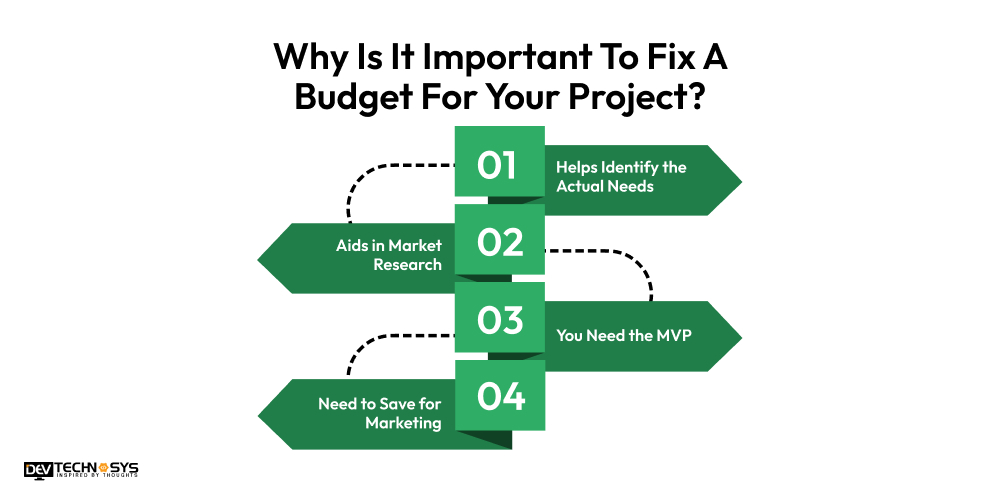
1. Helps Identify the Actual Needs
The budget you set to develop an app like Grab helps you think about what the end users want, so you can give them what they need right now. So, it will be easy for you to understand what features your app needs and make smart choices.
2. Aids in Market Research
The moment you think about your budget, you have to go out and do a lot of research on the market to find out what the going rates are.
3. You Need the MVP
The minimum viable product is what will get you to the investor meetings. To figure out how much and how long an MVP will take, you need to have a budget.
4. Need to Save for Marketing
There is no way you can be sure that your work and expenses will end when the app is finished. The process to develop an app like Grab has a few steps left.
The real problem is getting the app out there, marketing it, and getting it to the right people. Even though you can figure out food delivery app development costs, it is the costs that come up after the development is done that really affect how well the app does.
How To Monetize Your Ride-hailing App Like Grab?
You have made a truly beautiful app. Okay, check! What should I do now? Once your app is out there and people are steadily downloading it, it is time to start making money. Let us take a look at the main ways that apps can make money.
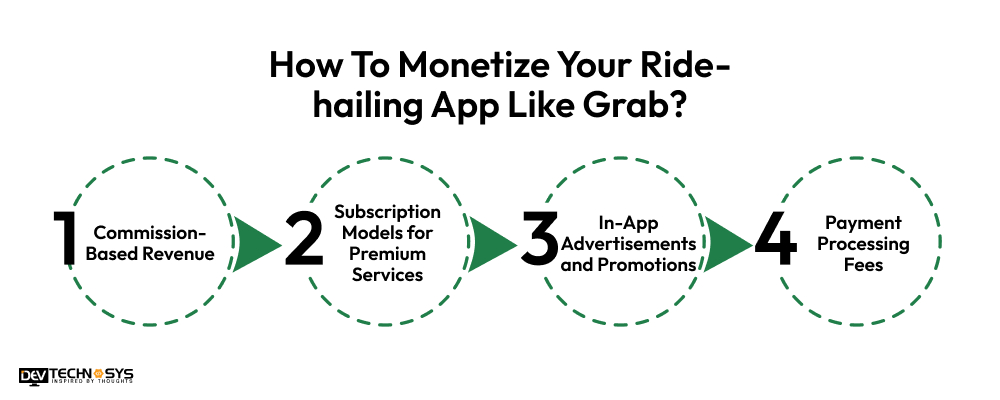
1. Commission-Based Revenue
Receiving commissions is a big part of how Grab makes money. Grab takes a very small cut of the money that drivers and vendors get for each ride or delivery.
Grab might get a cut of the driver’s tip or charge its restaurant partners a small fee for food orders, for instance. Grab makes more money when more people use its delivery and ride services, so this strategy works.
2. Subscription Models for Premium Services
Grab also uses plans that get you things over time. Users can choose to pay for faster options or extra services like GrabRewards. When they sign up, they can book rides ahead of time, get cheaper rides, or get special deals on deliveries in food delivery apps. Grab can make regular money this way, and users can get extra benefits that make their experience better.
3. Payment Processing Fees
By charging small fees to people who use GrabPay, Grab makes money. Grab gets a small fee from customers or businesses every time the wallet is used to pay for something. The fees are small, but the total amount charged goes up as more people use GrabPay to order food, get rides, or buy things in apps.
4. In-App Advertisements and Promotions
It is a great idea to make money with in-app ads. Grab works with brands to show ads or special deals in the taxi booking app like Gett. These deals and ads can be for restaurants, stores, or other services that are affiliated with Grab.
Businesses can get their ads seen by more people by using banners, highlighted listings, and sponsored content. These ads bring in money for Grab, and companies can use the app to promote deals and get more people to use it.
In A Nutshell!
Planning and investing is the most crucial stage in the process to develop an app like Grab. Consider factors such as cost, time, and selecting the right partner to ensure success.
There are many benefits, including providing convenience for users and creating job opportunities for drivers. Revenue can also be generated through subscriptions, transaction fees, and advertising. Partner with a reputable grab app development company, such as Dev Technosys, to ensure your success.
FAQs
Q1. How Long Does It Take To Develop An App Like Grab?
The time to build an app like Grab can be between 2-7 months or more. It can vary depending on multiple factors like app features, complexity, tech stacks and so on.
Q2. How Much Does It Cost To Develop An App Like Grab?
The cost to develop an app like Grab can be around $10000-$25000. It can fluctuate on the basis of your project requirements and different factors.
Q3. What Are the Benefits of Grab App Development?
The benefits to develop an app like Grab is mentioned below:
- Global reach
- Boost Brand awareness
- Cost effective solution
- High revenue
Q4.What Are the Best Ride-hailing Apps?
There are many ride hailing apps in the market. We have created a list of the most popular apps:
- Lyft
- Uber
- Curb
- inDrive
- BlaBlaCar
Q5. How To Build An App Like Grab?
You can develop an app like Grab in the following steps:
- Conduct market research
- Know your competitor apps
- Create a feature lists
- Design a UI/UX
- Develop the app’s backend
- Test your app
- Launch and market
